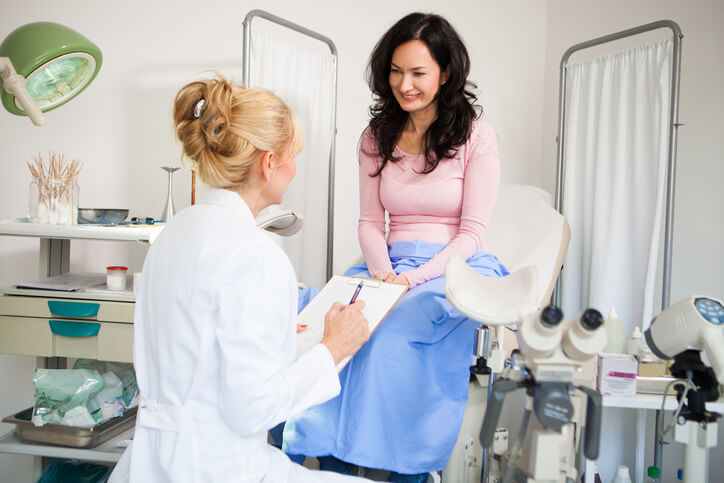
A doctor who focuses on women’s reproductive health and the systems involved is known as a gynecologist, or an OB/GYN. Scheduling a gynecological exam means you’re taking responsibility for your body in new ways. Women seek obstetrical and gynecological health care at many different stages of their lives for many different reasons, and look for a combination of both highly skilled and compassionate health care when they choose a doctor.
It’s a normal feeling for a woman to feel nervous or uncertain before their visit to the gynecologist, but it means accepting that your body changes, and that you’ve taken the step from girlhood into womanhood. The American College of Obstetricians and Gynecologists recommends that teenage girls start seeing a gynecologist between the ages of 13 and 15 for reasons such as:
- Helping you understand your body and how to best care for it
- Teach you how to protect yourself if you have sex
- Provides you with birth control and STD testing, pap smears, and breast testing (mammograms)
- See if you have any hormonal changes
- See if you have any conditions such as HPV (which can lead to cervical cancer), Urinary Tract Infections (UTI), yeast infections, and others
Your gynecologist can answer any questions you have about the many changes that may be happening to your body. It’s great to build a relationship with your gynecologist over the years so they understand your health and what matters to you. Going to the gynecologist can feel very nerve-wracking and stressful, but it doesn’t have to be if you are prepared. Here is a guide on how to prepare for your gynecology visit:
1. Do research: They say knowledge is power, but often people are left feeling disappointed after not doing enough research. Research is crucial to knowing what you are dealing with, how tests are done and how important it is for you to get routine exams of this nature. Doing your homework on the subject can even give you the right resources to help you pick the right gynecologist for you.
2. Don’t be afraid to ask questions, and be honest: Being clear to the gynecologist of what you want and honest about your life, and asking questions of what to expect, will only make your appointment and testing that much more successful. There is no such thing as a stupid question, and taking notes during the appointment can help in the long run. At times, what the doctor tells you can be a total blur or confusing. Writing notes down can clarify what you need to know.
3. Wear comfortable clothing: Being comfortable is important. To help ease your mind about the appointment bring a book or listen to music. Also, wearing comfortable clothes will make it easier while tests are done, if you have to change into a hospital gown.
To learn more on how to prepare going to the gynecologist, call University OB/GYN Associates at (315) 464-5162 to request an appointment or request an appointment online.



